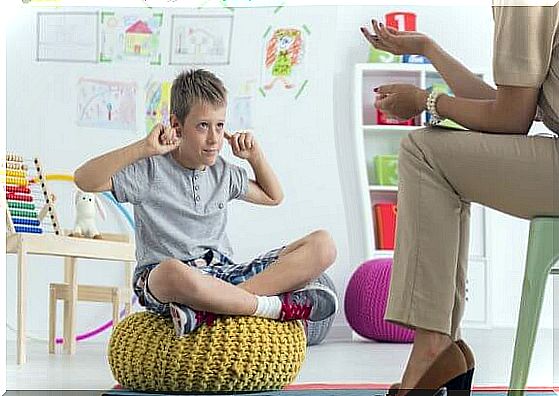Rewarding Children For Getting Good Grades: Advantages And Disadvantages

Rewarding children for getting good grades can have a negative effect on them. To ensure that children do well in school, parents often resort to a reward system. But is it okay to encourage kids with rewards so they get good grades?
It is very important that you congratulate and praise your child when he or she gets good grades in school, but try never to resort to gifts.
The child’s only responsibility as a student is, in fact, to study. That’s why it’s important to acknowledge your merits and show support for your failures. However, avoid making the ultimate goal a gift or prize.
However, if your child is doing well at school, it’s okay to feast on her favorite food, bake a cake to share with the family, or go to the movies to watch a movie she likes.
Reward children for getting good grades? Advantages and disadvantages
Remember that material possessions are neither the only nor the best way to reward a child’s effort. Teach how to work to achieve your goals. That way, she’ll be happier in the long run than just getting everything she wants without trying or making any effort.
Advantages of rewarding children for getting good grades
- Positive reinforcement. Recognizing the children’s efforts and rewarding them with an ice cream or an extra hour of video game will always be a positive thing. The important thing is to reinforce positive incentives, although it doesn’t necessarily have to be with material rewards.
- Immediate results. Behavior can be quickly and effectively conditioned with both negative and positive reinforcement. Usually the child reacts quickly to this methodology, from an early age. However, it is essential that this does not become the only way to direct or motivate behavior. This is because its effect will gradually diminish over time.
- Subject. Rewarding or punishing certain types of behavior is a good technique for establishing discipline and good behavior. This can work perfectly when guiding the behavior of the little ones. But what happens when there are no punishments or rewards?
Disadvantages of rewarding children for getting good grades
- You can limit the values. If the discipline taught by parents is based solely on rewards or punishments, children will likely not understand its true value. It may be that they behave in a certain way only as a reaction to their parents’ behavior, to win a prize or not to receive punishment, and not for values.
- Results by interest. This can happen with grades at school, for example. In this case, the child prioritizes rewards over actual learning. Maybe she doesn’t want to be punished or wants a new toy. So, to get good grades at the end of the term, you can copy papers, memorize the content to take the tests, but without learning, or cheating.
- Little focus on goals. If the child behaves in reaction to the positive or negative reward, he ends up losing sight of the real goal. That’s because she can focus more on the result of an exam to pass the grade than on the content that really matters.

Arguments for and against rewarding children for getting good grades
The arguments in favor of rewarding children are:
- Upon receiving a gift, the child will learn that effort and perseverance bear good fruit. It’s in return for their good work and will help keep the little one motivated.
- If you want to reward children for getting good grades, it is necessary to review whether they are material goods. Maybe it’s better to congratulate, give a hug, a kiss, or take time to spend together. This will fill the little one with satisfaction. He will be very happy that his work and effort have been recognized.
- There is nothing wrong with rewarding children’s efforts. However, ideally, she doesn’t expect this. Thus, she will understand it as the result of her work, and not as something she should always receive. That way she will be aware of her own perseverance and dedication.
- It is also possible to use the reward as an incentive when the child starts to lose focus, as long as it does not contribute to their indiscipline. Make her understand it as an extra motivation. The most recommended is to perform a daily booster without rewards that have material value.
The negative arguments for rewarding the little ones are:
- The child needs to understand that studying is their responsibility and that getting good grades is important to have a good future. Don’t let her get used to being rewarded for her accomplishments.
- Gifts can be counterproductive when the child comes to think that, rather than having an obligation to study, it is you who should give a gift at the end of the course. This will only make her demand more and better gifts.
- The reward cannot be used as an end. The child may interpret that he has to study to receive something in return. In this way, she can understand this as something inherent at the end of each bimester or year. The act of waiting for a gift loses its effectiveness, even when getting bad grades.
- If you promise a gift for passing every class and she doesn’t make it, it could also be harmful. That’s because it will increase the feeling of failure.
- It’s more effective if you dedicate time and care. Keep in mind that the most valuable things you can teach a child are values and a solid foundation for future adulthood. Material goods are only momentary.

Anyway, sometimes it’s okay for a child to deserve an award for getting good grades. The key is to understand that rewarding is not the only alternative to motivate the little ones to do well in school. After all, it’s important that children don’t lose sight of the most important reasons.









